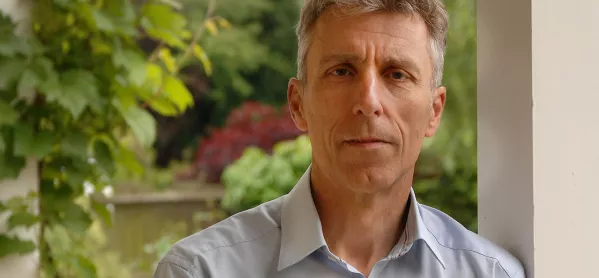I do wonder sometimes about what my children (now aged 17, 19 and 21) think of my approach to parenting.
Most years of their lives, usually in May, we’ve had an exchange a bit like this: “Where are we going, Dad?”
“We’re going to the polling station to vote.”
“Do we have to come? We don’t want to. We’re tired/it’s raining/it’s boring.”
“Too bad, you need to learn about elections and about politics. Get your shoes on.”
The ten-minute walk there usually involved me lecturing them about why voting is so important, what our democracy is all about and how grateful we should be to be able to vote. You get the picture. I’m not sure what impact this has had but it was much more fun once the older two could vote. We still go together but the lecturing is over as they voice their own views.
'Allow voting from age 16'
My youngest, though, has not had the pleasure of voting yet and was mightily resentful that she had no say in the EU referendum as a 16-year-old. She was not the only one, of course. Many young people felt that they should have had a voice on a decision with such long-term consequences. I agree and believe that we should allow voting from age 16.
In England, and for UK general elections and referendums, the voting age is 18. That means at 16 you can get married, have sex, pay tax, fight for your country but not have a say in how the country and your locality are led.
The case for change is a strong one, with more and more politicians from all parties joining the campaign that the Association of Colleges and the NUS students’ union are leading: Fair.Vote. The campaign is in support of Labour MP Peter Kyle’s private member’s bill, which would also see young people added automatically to the electoral register and schools and colleges used as polling stations.
The bill is supported by other MPs including Nicky Morgan and Norman Lamb, meaning that high-profile politicians from the Labour, Conservative and Liberal Democrat parties are behind votes at 16.
Everyone will have their view on this, with some vehemently opposed. Our campaign is not breaking new ground: in Austria, Brazil, Argentina, Estonia, Germany, Scotland, Jersey and probably soon Wales 16- to 17-year-olds have the right to vote in local, federal and/or general elections and referendums.
'The post-truth, fake-news world'
I’ve heard and read many reasons why votes at 16 is a bad idea. I can’t help but think that all too often, though, the opposition seems to rest on a rather patronising and superior view: 16- and 17-year-olds are clearly not ready for the vote. They won’t take it seriously, won’t understand enough about it and will vote for the wrong reasons.
All probably true of some 16- and 17-year-olds, but I am pretty sure that those risks are not the preserve of the young. From the lofty moral high ground of intellectual superiority, democracy looks like a dangerous game. The problem is we don’t seem to have a better alternative, so we need to make it work better.
This is where our campaign comes into play. A participative democracy needs informed, educated, engaged and active citizens. Schools and colleges play a vital role in this – helping young people to make the transition from childhood to adulthood and to being good citizens. Our campaign with the NUS is showing that young people want a voice, want to engage and want to be informed. Far from being flippant with the responsibility of voting, many students talk about being scared at the prospect and recognise the need to be better informed.
To support the campaign, colleges up and down the country are organising events with students and local MPs. The MPs I have spoken to are overwhelmed about the energy, focus, insight and challenge that young people bring to these meetings – all welcome in a more and more complex, post-truth, fake-news world.
Proof, perhaps, that now really is the time to reduce the voting age to 16.
David Hughes is chief executive of the Association of Colleges
Want to keep up with the latest education news and opinion? Follow Tes FE News on Twitter, like us on Facebook and follow us on LinkedIn





